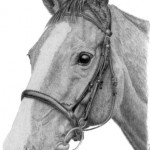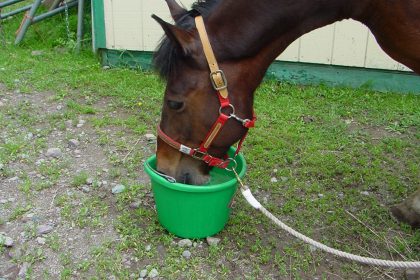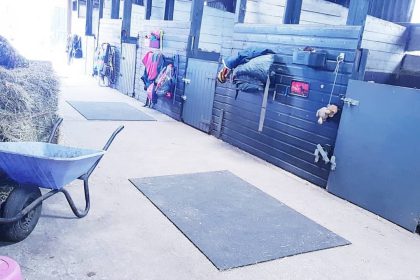Experienced people may find this helpful Riding Instructors First and formost Instructors have always been horsemasters and horse trainers.
This means they’ve been trained, and tested or appraised by practical assessment and oral questioning, and as a result have proved to the awarding qualification body’s assessors (the BHS or ABRS or BE/1st4Sport) that they are proficient in the arts and sciences of equine management and riding.
The riding instructor therefore, has the ability to understand and put into practice, all elements of equine management to a high standard and are able to meet modern welfare standards, and to teach and train riders and teach and train horses.
Riding instructors today however are also trained ‘people coaches’ working with their clients and pupils to improve both physical and mental skills.
Today sports instructors are called ‘coaches’ in most UK sports and even the BHS use the word coach for their instructors thereby coming into line with the national training and coaching standards.
We at Lingfield receive many enquiries every week one of the most common is similar to the following:
“I’m an experienced horse person – I don’t need to be taught the basics so would like to gain the teaching qualification quite quickly.”
Our response is not just about becoming a coach is not just a qualification in teaching people to ride. The teaching qualification is an all round qualification in ‘equine management’, ‘riding’ (including jumping and training the horse) as well as the ‘coaching element’. You cannot be entered for the coaching qualification with any of the awarding bodies unless you have achieved the basic qualification in equine management. The qualifying bodies won’t take it as read that you have the experience and ability just on your say. It has to be proved and assessed and it is vital to realise that a huge amount of the qualification assessment is based on safety and welfare – and those things must be assessed in person. The awarding bodies have to have standards and those standards require that you have achieved qualifications in equine managment.
To enter and gain the coaching qualification You have to have been assessed practically on your whole horse knowledge, management, care and ability, as well as your riding ability from the basics to Level 2 standard. This includes physically showing you can safely and competently plait, bandage, treat wounds etc. etc. and can safely and lunge to improve the horse not just for exercise – and the riding includes jumping a reasonable course of show jumps and some cross country. If you cannot show that your ability is of sufficient standard (by having gained the relevant prior qualifications), you cannot enter the coaching element of any of the two governing bodies for riding coaches in the UK.
Many people assume that if they (the candidate aiming for qualification) explain that they are ‘experienced’ and perhaps if they are seen riding by the qualifying people /examiners/assessors, that those assessors should somehow realise that this person (you) can do everything properly and above all, safely – from caring for wounds and feeding sick horses through to managing pasture to running a working yard but….. how could they know all this just from seeing you riding and from you telling them you are experienced?
Anyone gaining a qualification in teaching in the UK has to prove they have reached a standard of horsemanship (and this includes equine management) before they can enter the grading system for teaching/coaching. Your knowledge has to be proved in some way.
Some ask – but why won’t they believe me when I say I know enough and I am good enough?
Do they know for sure you are not exaggerating or even lying? do they know for sure you have handled emergency situations and all types of horses? do they know for sure your methods and systems of management are actually up to date, safe for everyone around you including the horses? Do they know for sure that you are not a chancer? or one of those people who does genuinely believe they know a good deal but actually they don’t?
Qualifications for coaching or the equine management qualifications cannot be gained by distance learning alone. Think about it, how could that be safe for everyone out in the horse world? How could the assessors awarding the qualification be sure that you or anyone is genuinely knowledgeable and experienced by you simply writing it down, they have to actually see the person handling horses in various situations before they are sure the person is safe.
The qualification system you are aiming for is there to keep the public (people who come to you for lessons and help) and the horses (in your care whilst you are teaching the rider) safe.
Unless the assessors from the qualifying body see you in a working yard going through the processes of caring for horses in various situations and questioning you on various elements of equine care they cannot possibly know if you are up to standard.
How can they know for sure that you are in fact up to date on current equine management and welfare standards. They do not know if you have even seen the welfare act or the guidance notes on welfare. Nor do they know if you would be able to present information to your staff clearly or write up risk assessments for various situations. They do not know without assessment if you are up to speed on pasture management, feeding, These are things that you as a qualified person would be required to adhere to.
Having assessed you on the ground and ridden and passed you and you have the certificates in your hand, you are then eligible to enter the coaching qualification.
They then view you coaching riders in various situations and question you on various aspects of coaching such as the different ways people learn and how to plan coaching sessions to have a good outcome.
Some say: I still do not understand why they won’t just believe I am experienced, why can’t I just take the teaching exam and leave the other basic exams out.
Some people think that as they know quite a lot and have ‘been around horses all their lives’ which they feel means they are experienced and knowledgeable, they do not need to take the basic exams. You know what you know, but how do people in the governing body qualification department know you really can do the things or know the things you say you do? The governing bodies do not have time to come to everyone’s home or yard to check them out over a period of days – they have to rely on standards and practical physical assessments. If we do not set standards in the industry, the qualification system is without any standard for a qualification and is worthless.
Think about this from your own point of view:
Let’s say you are interviewing people for a grooms position on your yard – perhaps because you have to go away in an emergency:
– seeing someone ride and then hearing them telling you they are ‘experienced and have owned and ridden horses for 10 years or been around horses all their lives’, has little impact on your ability to work out if the prospective staff member can do things safely and understand welfare implications etc.
It does not tell you if they are genuinely knowledgeable and up to date. It tells you nothing about their ability to care for horses in all situations or to teach your riders in different situations either. It is difficult to assess a person on all those things in just one interview. In a yard employment situation however, it might be possible to put the person on trial for a month to see their work and to see if they feel the yard is for them – you would assess them over time.
The group of people from the coach qualification awarding body who will test you, need to see you (have seen you previously), physically and practically handling horses – from basic stuff through to more advanced.
It might sound ridiculous to you – but they even need to see that you can safely pick up a foot. They cannot take people at face value just because they say they can do something. For safety of all persons who might be around in future when you are teaching or working with horses and riders, they have to see you do it.
If the awarding body were to give you that coach qualification without thorough practical checks on you they would be at fault – they would be failing horses from a welfare & safety aspect and humans from the same aspects. Today everything must be adhered to. this is especially important with horses which can be unpredictable. Perhaps now you can see that it is just not safe to let people ‘say’ they can do something without seeing and confirming it is true.
A professional coaching qualification in the equine world today is much the same as that in any trade or profession (school teacher, accountant, plumber or vehicle mechanic – and trainers and lecturers of those people). It is the same in most countries.
Every professional qualifying body has a strict written standard system by which the awarding society or group must adhere and you cannot simply gain a professional qualification because you ‘say you are’ …knowledgeable and or experienced’. You have to start at the bottom – there is little point to having a ‘standard’ and Ofsted accreditation otherwise.
There are some people however, who hold other or prior qualifications which may allow direct entry to some of the exams.
Few realise that the equine world is governed by TWO accredited and audited qualification bodies – both of which have to pass strict standards to attain qualification accreditation. In the UK the two qualifying bodies for working hands on in a teaching capacity (coaching) for riders are the BHS (awarding body EQL Ltd) the ABRS (via the British Equestrian Federation with 1st 4 Sport) Both offer equivalent national qualifications. The ABRS route (via BEF) offers an International Trainers Passport enabling you to teach overseas.
DIRECT ENTRY Check out the BHS direct entry route TO lower levels here. Check out the ABRS route to lower levels here – look at the link – Find out More About Coaching Level 1 – check page 2 of the pdf for entry requirements.
If you are considering gaining a qualification in teaching, is it helpful to know what you are aiming for and what you are in for too. This is where the Lingfield Coaching Preparation course is being widely used by those considering gaining professional qualifications.



Receive latest news and industry insights straight to your inbox.